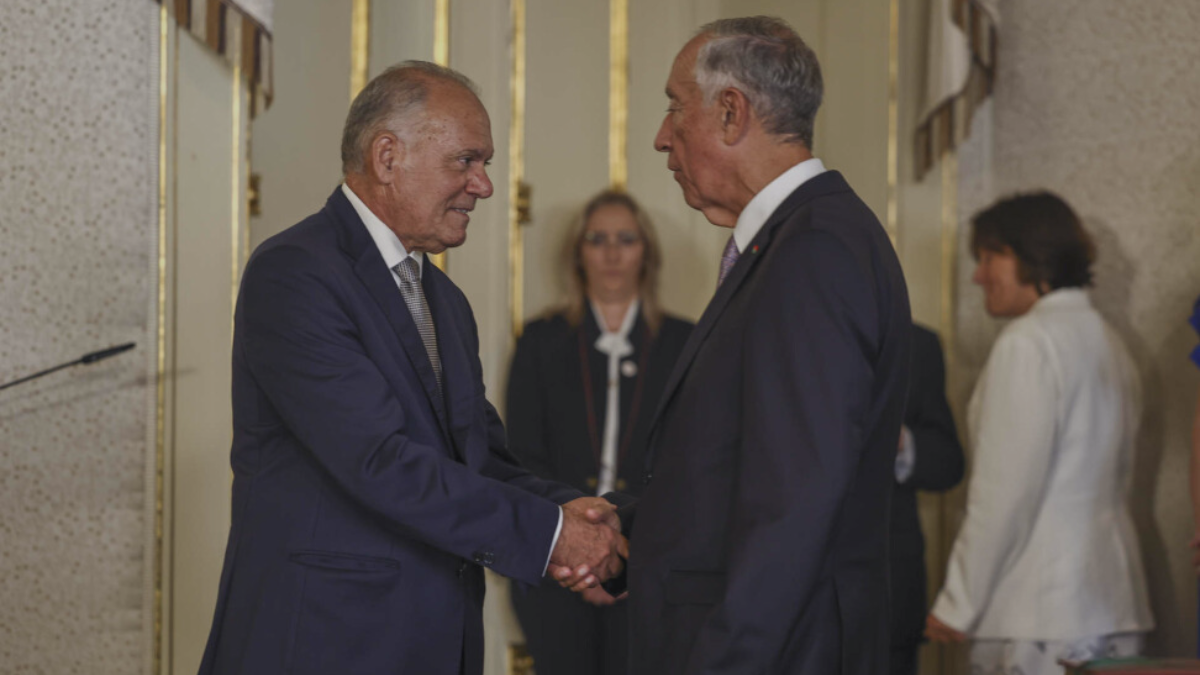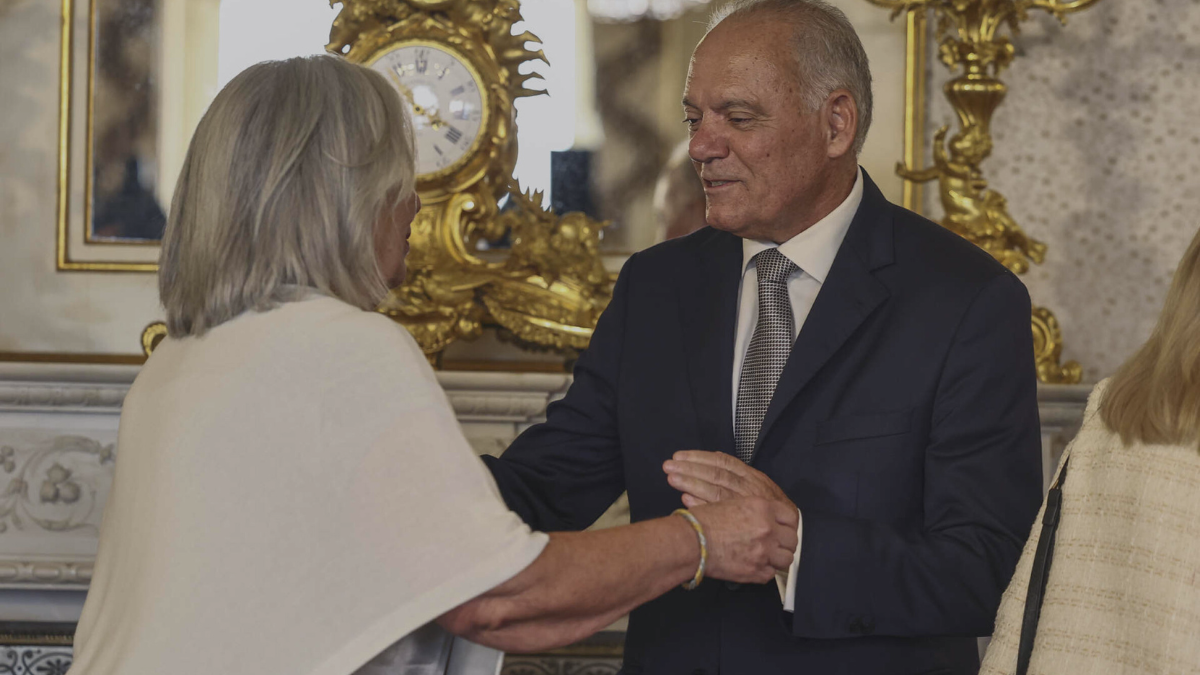Amadeu Guerra expressed his gratitude to Luís Montenegro for his persistence and determination in securing his appointment as Attorney General of the Republic, as well as to Marcelo Rebelo de Sousa for his trust.
However, he did not shy away from making three requests, which he referred to as appeals, to the Government.
Key Demands
Firstly, he highlighted the shortage of human resources, specifically referring to Court Officers, which affects the functioning of the justice system.
Read More About: Filipa Urbano Calvão New President of Court of Auditors
He also pointed to the lack of investment by successive governments in modernization and the digital transition, as well as the insufficient number of magistrates in the Public Prosecutor’s Office.
He also issued a warning, referring to it as “red lines,” directed at politicians attempting to alter the statutory rules of the Public Prosecutor’s Office. The Attorney General warned saying:
There are also red lines that I do not accept, namely, the change in the statute of the Public Prosecutor’s Office in violation of the Constitution and its autonomy and independence.
Priorities as Attorney General
The new Attorney General of the Republic (PGR), who identified crimes related to domestic violence as a top priority, pledged to closely monitor efforts to combat corruption. He emphasized addressing the causes of delays in certain investigations, underscoring the importance of greater involvement from the Judiciary Police.
Furthermore, he assured:
In the case of corruption and related crimes, as well as economic and financial crimes, I intend to closely monitor, through the directors of the Regional DIAPs and the Central Department of Investigation and Criminal Prosecution (DCIAP), the reasons for the delays. At the same time, we must effectively involve the Judicial Police, given the recent increase in its human resources: inspectors, experts and technological resources.
Presidential Acknowledgment

Marcelo Rebelo de Sousa expressed his gratitude to Amadeu Guerra for taking on a mission that, while not impossible, requires exceptionally high qualifications in terms of training, civic responsibility, and interpersonal skills—qualities that merit special recognition. A
At the same time, he also placed a sense of responsibility on the new Attorney General of the Republic (PGR).
Marcelo Rebelo de Sousa emphasized the key responsibilities of the new Attorney General, urging him to lead where leadership is needed, bring peace where necessary, focus closely on corruption, and educate without compromising constitutional and legal principles. He also encouraged openness to reforms where appropriate.
Reflection on Lucília Gago’s Tenure
Reflecting on Lucília Gago’s tenure, which ended today, the President described her six years in office as a period marked by more challenges, misunderstandings, and sacrifices than moments of calm or favorable circumstances.
Amadeu Guerra also reflected on Lucília Gago’s term as Attorney General of the Republic, acknowledging that despite the challenges she faced, she carried out her duties with intellectual honesty and dedication.
He noted that her tenure was marked by unfortunate circumstances, yet her commitment remained steadfast. He added:
A final word to the outgoing Attorney General, who was not fortunate during her term of office, when a pandemic occurred that – for about two years – changed the habits and motivation of the Portuguese people. Even so, I believe that she exercised her role – as she has always done throughout her career – with intellectual honesty and dedication.
Challenges During Gago’s Tenure
The President of the Republic reflected on Lucília Gago’s succession of Joana Marques Vidal, highlighting the particularly challenging circumstances she inherited.
He pointed out that Gago took on her role under a period marked by a very critical collective judgment regarding the state of Justice, especially in cases of complex, internationalized criminal justice, which involved political, administrative, economic, and social forces.
Marcelo Rebelo de Sousa stressed:
Moreover, there is a constant confrontation between public and/or published opinion, which is increasingly demanding and considers every omission or delay as a sign of protection against abuses and abusers. And another public and/or published opinion which is increasingly complaining and/or denouncing the abuses of justice, seen as persecution of people and, within them, of those holding political, administrative, economic and social powers.
He noted that public debate often anticipates judgments as a consequence—right or wrong—of the frequently unjustified delays in the justice system and added:
If we add to what has been said, past misunderstandings and grievances, organic, procedures and means designed for other times and challenges, the inevitable departure of generations from the principles of democracy, new problems posed by mega, or almost mega, processes in both magistracies – and I speak only in the criminal domain so as not to cover other areas and other requests – these last few years have not been a favorable context at all.
Background on Amadeu Guerra

Amadeu Guerra, 69, was born in Tábua (Coimbra) and graduated from the Faculty of Law at the University of Lisbon. He has held several positions in the Public Prosecutor’s Office (MP) but gained significant recognition as the director of the Central Department of Investigation and Criminal Action (DCIAP) from 2013 to 2019. In this role, he led investigations into major corruption and serious, complex economic-financial crimes.
Also Read: Lisbon Municipal Housing Charter Proposal Withdrawn Over Lack of Consensus:
Guerra was appointed to head the DCIAP during the term of then-Attorney General Joana Marques Vidal. Under his leadership, the DCIAP investigated several high-profile cases, including Operação Marquês, which involved former Prime Minister José Sócrates as the main defendant, the BES/GES case, and Operação Fizz.
The latter case resulted in the accusation and conviction of prosecutor Orlando Figueira for corruption. Ironically, Figueira was a member of the DCIAP and is currently serving his sentence in Évora prison.
Reception of the Appointment
Most unions in the sector welcomed the appointment of Amadeu Guerra, who also served as the regional attorney general for Lisbon.
The Minister of Justice, Rita Alarcão Júdice, considered Amadeu Guerra the right person, in the right place, at the right time. She said that she had great hopes for a turning of the page in the Attorney General’s Office during his six-year term.
Lucília Gago, the current PGR, expressed her satisfaction with Amadeu Guerra’s appointment as her successor, emphasizing his “vast experience” as the former director of the DCIAP.
However, the Government has already dismissed the application of a 70-year age limit for magistrate functions to the new PGR, Amadeu Guerra, labeling it a false issue.
The concern was raised by former PGR Cunha Rodrigues and Luís Azevedo Mendes, the vice president of the Superior Council of the Judiciary (CSM). They highlighted the potential need to revise the rules to permit individuals to serve in judicial positions beyond the age of 70.






